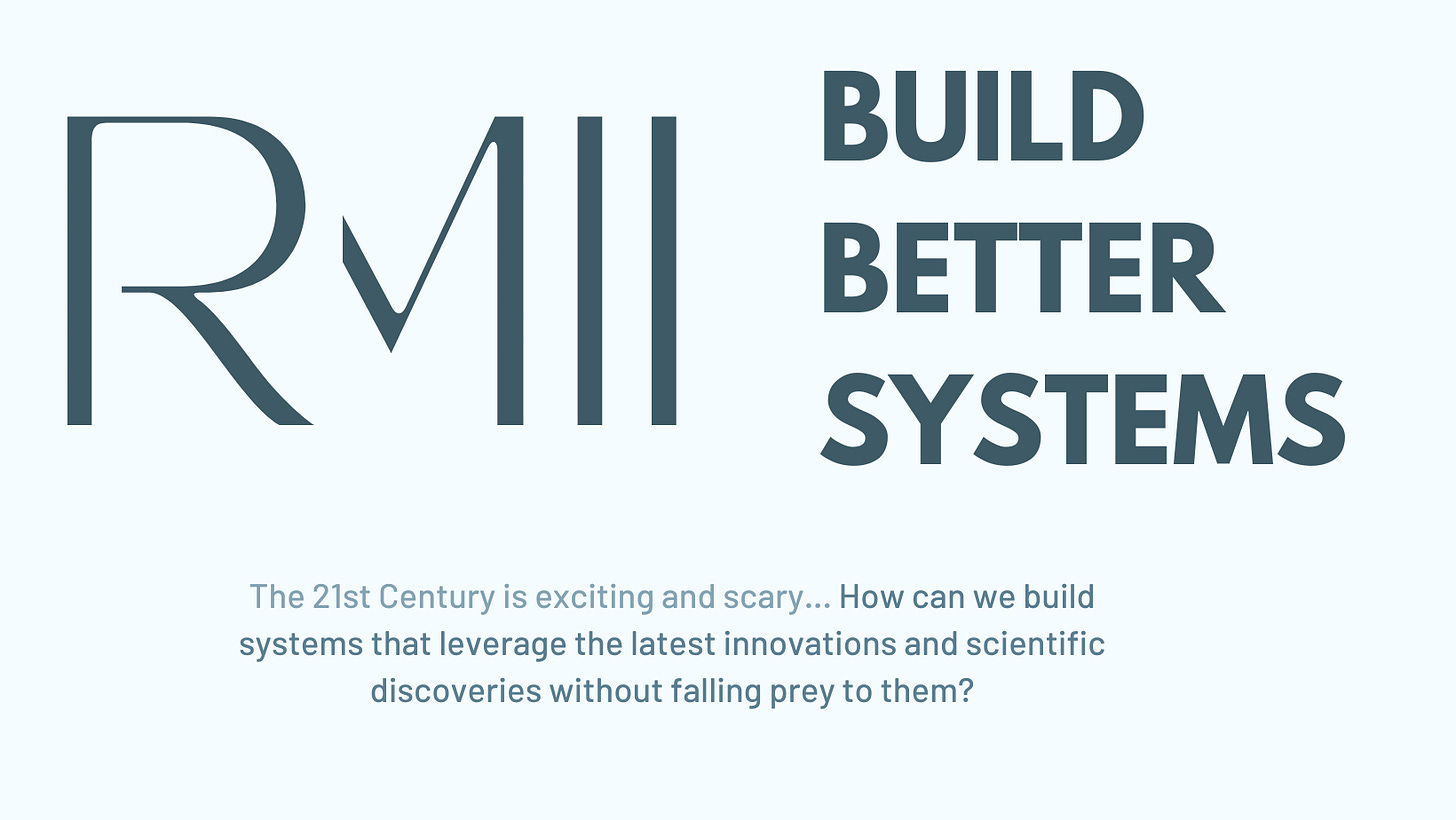Writing Agenda
The meteoric rise of artificial intelligence is set to change the way humans interact with information and live their lives. The advent of publicly accessible large language models, such as ChatGPT, is already changing the way we search for information, operate in our careers, and communicate with each other. Introducing human-like AI systems on top of a losing battle against algorithmic social media feeds raises many concerns about a future with intelligent systems.
This blog is my attempt to unravel years of building systems, devising protocols, crafting principles, and philosophizing to navigate the nuanced challenges of 21st-century life:
An exploding information landscape with a high noise-to-signal ratio
The dangerous departure from the environmental context that humans evolved in
Becoming the subject of a competition between algorithms to consume our attention
The transition from facing survival to facing the “meaning of existence”
The list goes on, but they all share the same theme. We have built incredibly powerful systems on the backs of historic technological progress without a clue on how to control them or understand their iatrogenic side effects.
My approach is to fight destructive systems with constructive systems, and I believe we can leverage the very same intellectual faculties that gave birth to modern technology–science, mathematics, engineering, systems theory, and artificial intelligence.
This is the premise of my writing agenda. I lean on my expertise in data science and artificial intelligence to devise 21st-century life optimization strategies, drawing on the most profound ideas in mathematics, science, and systems theory to incrementally improve the dimensions of life–productivity, health, intellect, community, career, etc. I especially focus on exploiting the latest innovations in AI because it is just a tool, and with careful, well-thought-out usage, I know it can be a force for good.
Writing Style
I am a proponent of practical philosophy, which means I value actionable insights, not merely insights. Stoics berate philosophy without an emphasis on practices and actions. I do my best to balance abstract ideas with concrete implementations–everything from scientific philosophy and systems theory to Notion and biohacking.
I try to appeal to audiences of varying levels of technical and system proficiency.
You will also notice an “epistemic status” and “epistemic effort” at the top of some of my writings. The purpose of an epistemic status is to provide transparency to the reader on the writer’s confidence in their ideas, as well as some brief background that may explain the motivation of those ideas. The epistemic effort describes how much effort the writer actually puts into the piece. Personally, I think the information landscape would be in far better shape if more writers committed to providing this context, so I will do my part. My inspiration to include an epistemic context comes from this blog post by Devon Zuegel.
Background
It was in my early teens when I discovered my passion for optimizing the self-improvement process through systemization. I started with systems to study for standardized exams, develop athletic abilities for competitive soccer, and cultivate musical talent. Truthfully, it’s always been a passion that brings me great joy.
I pursued my curiosity for systems academically, studying chemical engineering and computational science at the University of Texas Austin, and currently studying Information and Data Science at UC Berkeley. I chose a career in data science and AI, which means I apply scientific rigor, mathematics, and computer science to build, study, and optimize complex systems. With the advent of consumer-facing productivity systems like Notion, Obsidian, Roam, and Evernote, and consumer-facing IoT devices like Oura, Fitbit, and Withings, I have spent considerable time applying my skills in science, math, and engineering to data-driven, intelligent life operating systems–systems powered by personal data and AI.
My passion for building systems is fueled by a desire to optimize every aspect of my life. I view life as a multi-objective optimization problem with the overarching goal of maximizing the quality and duration of my life experience. I see life operating systems, routines, behaviors, protocols, mindsets, and skills as the software programs that run our lives. Self-improvement is simply an effort to optimize our life, not in any local moment, but an end-to-end optimization.
Subscribe to get full access to the newsletter and website. Never miss an update.



